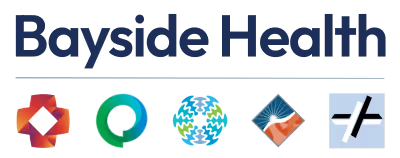Assessor guide: Prescribing personal alarms
.jpg)
For OTs and allied health professionals, prescribing personal alarms is more than simply selecting a device - it's about empowering clients to live safely, independently and with dignity. The right personal alarm will give clients the security needed to build confidence, provide a sense of autonomy and improve their quality of life. An unsuitable personal alarm can foster dependence, increase anxiety and potentially put clients at risk.
We have outlined five key considerations to assist allied health professionals in their decision-making when prescribing personal alarms.
Personal alarms overview
There are two main types of personal alarms: monitored alarms and auto-dial alarms, each offering very different levels of support in an emergency.
Monitored personal alarms connect users directly to a 24/7 emergency response centre staffed by trained professionals who assess the situation and quickly dispatch the right help. The operators also notify contacts and stay in touch with the client until help arrives, providing much needed reassurance and support.
In contrast, with auto-dial alarms, emergency alerts are sent to a list of personal contacts—often family or friends—who may not be trained to respond or even available to answer. In a real emergency, this can lead to confusion, delays, or missed calls, costing precious time when every second counts. Unlike trained responders, personal contacts might not know how serious the situation is or what action to take, leaving the person in need vulnerable.
This gap in reliability is one of the reasons that CHOICE Australia does not recommend auto-dial alarms, awarding them a Shonky Award for being “unreliable and hard to use” in real-world emergencies. For clients who are vulnerable or live alone, a monitored alarm offers faster, more dependable support—reducing the time it takes to get help abd providing peace of mind for both users and their families.
1. Lifestyle Audit: Understanding Client Needs
The first step in selecting the right personal alarm for a client is to understand what matters most to them. Are they largely home-based and seeking increased security around the house? Do they live an active life and want increased confidence when out in the community? Are they at increased risk of falls? Do they prioritise getting help as quickly as possible?
MePACS offers a range of monitored personal alarms to suit a variety of budgets and lifestyles. Our mobile and home alarm bundle provides around-the-clock monitoring at home and on-the-go. The MePACS mobile alarm and Solo Connect work anywhere in Australia where there’s good 4G cellular coverage. These alarms also feature built-in falls detection and GPS technology.
2. Resource Review: Identify Existing Supports
Another important consideration when prescribing personal alarms is assessing the client's existing support system. Do they have access to an informal support network, such as friends, family members or neighbours? Do their informal supports live nearby, and would they be willing and able to assist in an emergency?
If the answer to the above is no, a monitored personal alarm service, such as MePACS, would be the best option. Our 24/7 professional monitoring ensure that fast and effective help is available at any time of the day or night. Even if the client does not respond after activating the alarm, we will still send them help. This is especially critical for at-risk people who may lack an informal support network.
3. Personal Capabilities: Match the Alarm to Your Client’s Abilities
Choosing the right personal alarm for a client depends on their individual abilities. Your client must be able to activate the personal alarm safely and easily. Take into consideration your client’s dexterity, if they have vision impairment, their cognitive ability, their comfort with technology and any other medical conditions that may influence their ability to use an alarm.
The MePACS home alarm and mobile alarm feature a prominent help button, assisting with user-friendly activation for clients with limited dexterity or vision impairment. MePACS also offers a range of high-quality accessories, including a vibrating pendant, blow switches and Jelly Bean switches, designed to support accessibility.
4. Funding Options: Assess Government Programs and Support
Cost can be a key consideration when selecting a personal alarm and understanding what funding is available to your client is helpful when assessing an alarm’s suitability. MePACS alarms can be funded through several state and federal government programs, including Support at Home, NDIS, Personal Alert Victoria (PAV) and Personal Alert Assistance SA (PAASA).
We offer cost-effective solutions and special pricing for funded clients. Our dedicated team provides fast quoting to facilitate and streamline funding approvals, reducing the administrative burden on health professionals. To request a quote or access our special prices for funded clients please visit our referrers hub.
5. Features: Customise with Care
Lastly, but certainly not least, it’s important to consider a personal alarm’s features when selecting the best device for your client’s unique needs. Useful features to consider may include GPS tracking, fall detection, water resistance and two-way communications through the alarm. MePACS alarms offer a broad range of features to suit different client lifestyles and requirements.
Free Personal Alarm Education Session
Did you know that MePACS provide free, tailored education session designed for Allied Health Professionals? Our practical, evidence-based sessions help close the knowledge gap for better referrals and improved outcomes for your clients.
Find out more about our product education and information sessions



.avif)
.avif)
